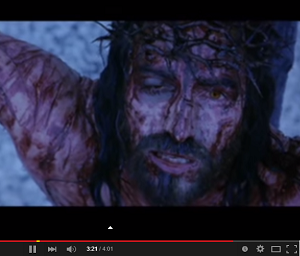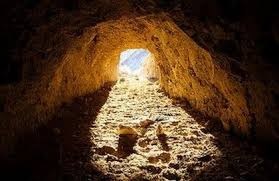
Arquivo para April, 2015
Where does Europe
If Easter is passing, it is hard to imagine where will the world without wonder where is Europe, although the East and the Middle East are not more European colonialism expression, was in Europe that was born the modern state and its democracy and there also germinated the industrial revolution and liberalism, but in digital times she is still the center?
East and the Middle East are not more European colonialism expression, was in Europe that was born the modern state and its democracy and there also germinated the industrial revolution and liberalism, but in digital times she is still the center?
Caught two exponents of European thought, because I think you have to be European to understand the crisis itself, Peter Sloterdijk wrote that “If Europe awakening” (São Paulo: Estação Liberdade, 2002) and Edgar Morin “Culture and Barbarism European” (Lisbon: Piaget Institute, 2005), a German and a Frenchman, Europe seems well represented.
I take them and not others, because they are in my view really postmodern, that is, there is a critical modernity revisiting the role of the Illuminist State, the liberal idealista- thought and finally and especially, colonialism and neocolonialism European.
Morin when considering the emergence of totalitarianism in Europe sees it as “out of all predictions … the result of a historical process out of the disaster that was World War … that was a trigger murderous barbarism while one suicidal act for Europe. “(Morin, p 51), while Sloterdijk says,” most European statesmen, Felippe II Churchill, understand the meaning of the allegorical image of the seventeenth century that depicts the Emperor Charles V as Atlas: on the shoulders of the Emperor rests a globe girded by a garland with the couplet The quam serious onus (as a burden pedado) “(Sloterdijk, 2002, p. 14).
It is the result of a colonial mentality, expressed in Morin: “This colonial barbarism, of excessive brutality, continue to manifest itself in France in the twentieth century, as is confirmed by the Sétif massacre committed on the day of the end of Second World War, the May 8, 1945, and the numerous atrocities during the war of Algeria” (Morin, 2002, p. 26).
Finally the crisis of thought expressed in Sloterdijk with the tripod: absurd, frivolity and lethargy, absurdity of the two wars, lethargy speech of the “return of Europe” after the war with “psicopolíticas and cultural characteristics” and consumer lethargy the late twentieth century, and frivolous “is one that no serious foundation in the nature of things, must be decidir- by this or that: it is bright green and not crimson, the salmon teriyaki and not mouton loaded in, … etc “(Sloterdijk, 2002, p. 27), finally connotations of a typical existential emptiness of a cultural crisis.
The Morin ideas are well known and have expressed here and in the recent post of knowledge necessary for the future, as well as the way out of this crisis “key idea refers to the process I call the planetary era” (Morin, 2005, p . 40).
Only this planetary perspective without neocolonialism and solidarity with humanity, Europe can find your destination united to all people.
The passion of Christ for atheists
Read and then re-read, always with some prejudice, Nietzsche’s book “The Antichrist” in the first reading was materialistic and was reading Nietzsche as “irrationalism”, and recently as a Christian because it would be condoning the biggest “enemy” of human salvation .
materialistic and was reading Nietzsche as “irrationalism”, and recently as a Christian because it would be condoning the biggest “enemy” of human salvation .
Should have first read “The Birth of Tragedy or Hellenism and pessimism”, but actually lost prejudice when I met Oswaldo Giacoia Jr and he explained the life of Nietzsche, in particular, his pastor father and a Lutheran pietistic mother, this explains a lot of things.
Can be pretentious, but I think you can read it from the aesthetic, since it states: “. Only as an aesthetic phenomenon that existence and the world be justified forever” (Nietzsche, 1992, p. 47) and this may be an essential part of your thinking and remember here the writer Victor Hugo: “Art save the world”, see what you think of Greek tragedy.
What does this have to do with the passion of Christ, is his analysis of the role of “chorus” in the tragedy, and says the problem becomes severe in Euripides to delete the choir, destroys the tragedy and to involve the reason, eliminates one of his plays everything that is not found in life, but there is a choir. This is how many understood it as “irrational”, but the reason is in check.
But to completely eliminate the choir, Euripides did not consider the cognitive function, namely, that to know what the hero was thinking and so he, but eliminated the very information was transmitted to the public. Jacques Rancière apronfundou this in “The emancipation of the beholder,” or we could say the reintroduction of the choir.
It is the choir and not the confidant (Nietzsche cites the example of chaperone), whom the tragic hero is revealed, credibly way, your fears and deepest aspirations.
Christ calls intimately in various passages of God father, called the father of Abba would Dad or Daddy, in his prayer taught to the “choir” it creates the Our Father.
However the crucifixion he distances himself from God and closer to the human choir and says, “My God, My God, why hast thou forsaken me,” is your abandonment to man and his condition.
It is the tragedy of the crucifixion of Christ that invokes the choir of humanity, here He is the man.
NIETZSCHE, Friedrich, The Birth of Tragedy (Trans. Douglas Smith), Oxford University Press, 2008: pages in portuguese edition in text.
Banquets, dialogues, memory and love
Not only in the Christian liturgy, but in the whole philosophy and literature dining table has a strong meaning when speaking of relations and dialogue among its diners.
speaking of relations and dialogue among its diners.
The Plato’s Symposium with Phaedrus, the two dialogues of Plato whose main theme Love, Banquet Plato he talks about the nature and qualities of love, but is primarily concerned with the issues surrounding the City and philosophers.
At the Last Supper of Jesus, after numerous conversations, some made based on parables, the parable of the talents of Lazarus and the rich, the last time worker, smart administrator and so many others, he conducts a dialogue with his apostles and prepares to leave his memory, but what would be the true memorial of Jesus.
He is explicit in the Last Supper, it was common wash their hands and feet at feasts, and Jesus begins with an unusual gesture, usually the slaves washed their feet, and Jesus himself will make this gesture, trying to teach humility and service to his disciples.
Then for supper, it was Pascal supper of the Jews, but was not made on Friday, He is on Thursday because the lamb should be Slain (dead) will be himself, and there is one second unusual gesture in Jewish supper there Elijah’s cup that is always part and Jesus taking this cup (usually there are individual cups) it will use this cup, indicating that He is the one that Elijah had announced to come, take it and give it to your friends , to take along with the bread already allocated, the bread in the Jewish supper is hidden and must be found, and then he will say what is your memorial:
In Paul’s letter to the Corinthians, Jesus says “Do this in memory of me” (1 Cor 11, 24) and complete:. “Every time, in fact, you eat this bread and drink this cup, you will be proclaiming the Lord’s death until he comes “(1 Cor 11, 26).
Jesus is speaking of his death which is the apex of his love, to give his life for humanity, which should happen in the coming hours when it will be delivered to their executioners.
Alice watched Forever, which tells the story of a teacher with early Alzheimer’s disease who is preparing to memory loss and death, the actress Julianne Moore won the Oscar for best actress, and the film’s director, Richard Glatzer died March 11 of ALS, there are therefore two life lessons in the film.
In literature many plots that take place around the table, a recent novel is “Dinner”, the dutch writer Herman Koch, one of the biggest best-sellers of 2012 Europe with more than 1 million copies sold and will now for the cinema.
The Paschal Mystery and the existence of God
Just as the Higgs particle explains by Standard Theory Physics, but valid only 4% of all universe called baryon (energy and mass of particles and sub-particles) and now try to unravel the mystery of the other 96% of mass and dark energy through a new experiment that can understand black holes and the parallel universe (our previous post), also two metaphysical questions remains: whence came the universe? God exists?
(energy and mass of particles and sub-particles) and now try to unravel the mystery of the other 96% of mass and dark energy through a new experiment that can understand black holes and the parallel universe (our previous post), also two metaphysical questions remains: whence came the universe? God exists?
The research Hadron Collider’s on the particles and the parallel universe tries to answer the first of only physical way, but could the universe was created in which principle.
But that answer the universe can give us about God, if your start is explained and revealed.
There are two attempts at answers, call the science of assumptions, one of them explains that there would be a fine-tuning a chance as unlikely mathematical combinations that only the existence of a higher intelligence explain these combinations, Francis S. Collins who was director of the Project Human Genome and is director of the National Institute of Health (NIH), American organ Health research formulated this hypothesis.
For Collins, “The bottom line is no accident. It reflects the action of something that created the universe”, and tunnelling is a important physical research in quantic energies.
As for the physical atheist Victor Stenger, professor of Hawaii and author of “God: The Failed Hypothesis” (Deus: a hipótese falha, no translation in Brazil) rule out the possibility of fine tuning.
For him the universe was not tuned to us, we were we to meet his conditions, and cites old assumptions that have been refuted: “Until the 20th century, it was believed that the matter could not be created nor destroyed, only transformed from a type to another, “so it is impossible to create matter, the very existence would be a miracle, Einstein proved that can be created from energy, and physical proved it can be transported something like the teleportation of science fiction, and also the NASA looking for life on other planets.
In fact prove that it exists or does not exist remains mystery as the mystery of life and even more the mystery of death, and it is precisely this passage death-life that is Easter.
Easter, which is Christian continuity of Jewish festival that celebrates the passage of life in Egypt of slaves to the Promised Land, is for Christians the passage from death to life.

